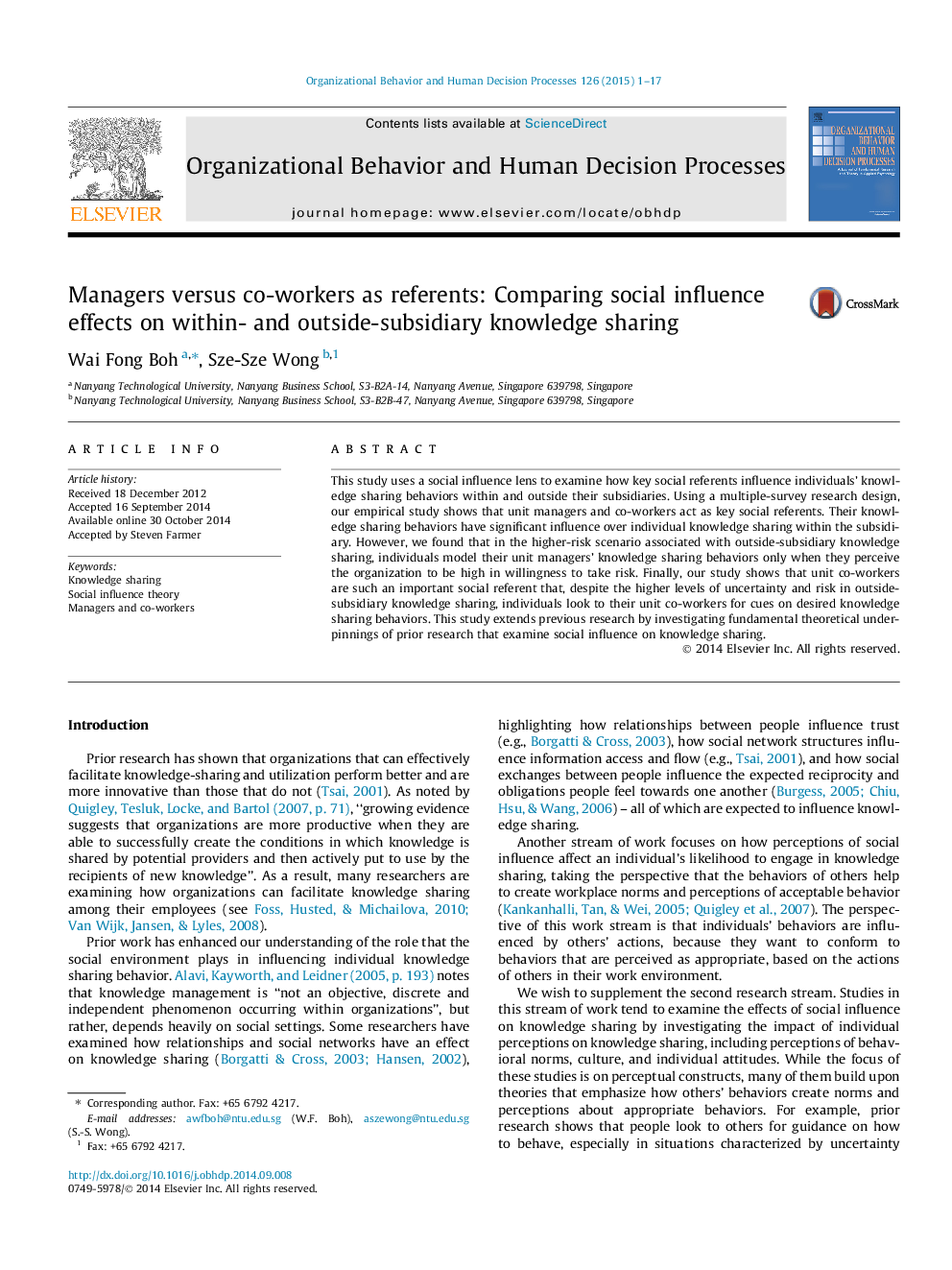| Article ID | Journal | Published Year | Pages | File Type |
|---|---|---|---|---|
| 888554 | Organizational Behavior and Human Decision Processes | 2015 | 17 Pages |
•We examine how co-workers and managers serve as referents for knowledge sharing (KS).•Actions of managers and co-workers influence employees’ within-subsidiary KS.•Managers and co-workers differ in their influence on employees’ outside-subsidiary KS.•Manager influence outside-subsidiary KS only if the organization is high in perceived willingness to take risk.•Co-workers influence outside-subsidiary KS, regardless of the organizational perceived willingness to take risk.
This study uses a social influence lens to examine how key social referents influence individuals’ knowledge sharing behaviors within and outside their subsidiaries. Using a multiple-survey research design, our empirical study shows that unit managers and co-workers act as key social referents. Their knowledge sharing behaviors have significant influence over individual knowledge sharing within the subsidiary. However, we found that in the higher-risk scenario associated with outside-subsidiary knowledge sharing, individuals model their unit managers’ knowledge sharing behaviors only when they perceive the organization to be high in willingness to take risk. Finally, our study shows that unit co-workers are such an important social referent that, despite the higher levels of uncertainty and risk in outside-subsidiary knowledge sharing, individuals look to their unit co-workers for cues on desired knowledge sharing behaviors. This study extends previous research by investigating fundamental theoretical underpinnings of prior research that examine social influence on knowledge sharing.
